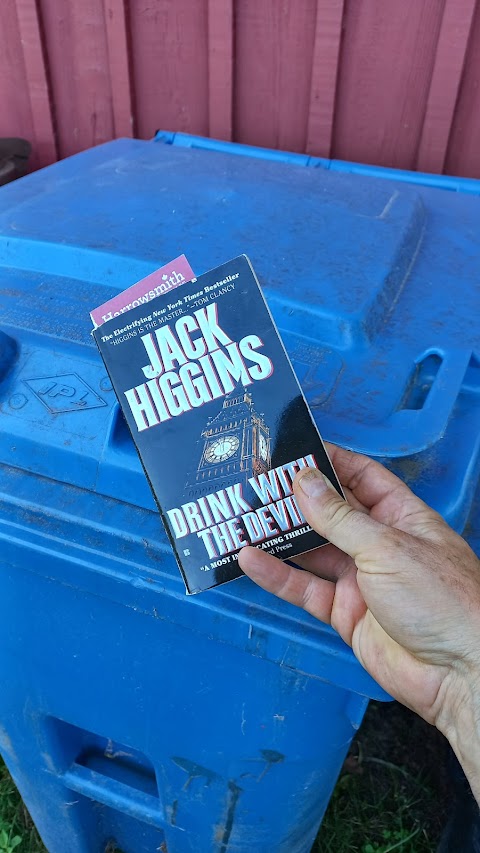Think your life is tough? Life on the frontier was far from glamorous, and even farther from easy.
In 1836, young George Stacey was a philandering, irresponsible young man who was running around London and racking up debts he could never repay. His father, an Ordnance Clerk at the Tower of London, and George’s father in-law, decided that the best course of action was to send George to Canada, with his young wife Eliza in tow. The two children, Fred and Louisa, would stay behind.
The couple settled on a vacant piece of land in what is now Ascot Corner. Being city folk in an alien environment, it would have been a bit like going to Mars. George and Eliza would never see their parents again yet maintained in regular and affectionate contact for the remainder of their lives. And amazingly enough, their correspondence survived until it was found by author and editor Jane Vansittart, who sifted through them and created Lifelines: The Stacey Letters 1836-1858.
Before we go further, let’s stop for a second to think of Eliza: She marries this carefree young man who promptly gets in trouble. She then sticks dutifully by him while her own father seems good with sending her to the other end of the world with a man who is, by all appearances, a n’er do well. She’s going to spend the rest of her life giving birth to another six children, and have as many miscarriages, struggling, literally, to survive. Yet in her letters she rarely complains about her lot in life, even when her son Albert, born with severe disabilities, dies at the age of seven.
With little money and surrounded by the boreal forest, city slickers George and Eliza must figure out how to survive, and fast. Pioneer life is hard, and the necessities of life are both hard to come by and expensive. And no one, not even in the nearby settlement of Sherbrooke, has cold hard cash to buy them.
In the following months and years, the couple faces the near constant threat of starvation, winters colder than anything they’ve ever experienced, and summers hotter than the tropics. Their potato crops mirror that of Ireland, where the great famine results in thousands of deaths and thousands more emigrating to Canada. George writes of the sorry state of these Irish refugees, also sent to the colonies because they were seen, as were the Stacey’s, as a problem to be disposed of.
And yet, despite his initial lack of knowledge, greenhorn George gets down to work, and even dams up a brook on his property to build a sawmill. Cutting trees, sawing lumber, farming, and trying to prosper. But the lack of cash is a constant problem, and on occasion George spends time in jail in Sherbrooke due to unpaid debts. Eliza, seemingly always with a child on her hip or in her belly (or both), manages to keep the home fires burning.
In fact, the Stacey’s probably wouldn’t have survived had it not been for dear old dad, who periodically sends what little money he can spare. That and some bits and pieces of inheritances, makes the difference. Bundles of clothes, usually castoffs from family in London, are hydraulically compressed into bales and sent by ship, for a new life in Lower Canada.
Dad’s letters give insight to events of the time, such as the fire in the Tower of London, in which the Crown Jewels are nearly lost. Or the Great London Exhibition of 1851. And at a time when it took weeks or months for letters to arrive, there’s a commentary on the new trans-Atlantic cable, a revolution that accelerated communications on a scale never seen before. Dad is suspicious of this new-fangled technology.
Eventually the children, Fred and Louisa, come to live with their parents at Drighlington, the Stacey property across the St. Francis River from modern day Ascot Corner. There are good years and quite a few bad years, all told in typically stoic fashion: Alfred slices the ends of his fingers off on a circular saw but can work again in a few weeks. George has a gigantic boil that is very painful. Or spent days in bed in agony over his sciatica. Eliza is unable to walk because of lumbago, or the aftereffects of the latest miscarriage. Fred got poison ivy, again, and can’t even put his boots on from the pain. Then George tumbled into the basement, dislocating a shoulder and an elbow, but got back to work after a few weeks. Louisa makes observation that the children were shorter, likely due to a diet that consisted mainly of buckwheat, corn and what few potatoes they managed to harvest.
Eventually, and only after the passing of Eliza, the family begins to do more than survive. George buys more land and builds a grist mill. Louisa takes over as head of the household, raising a few animals and looking after the children. She only marries later, after her father dies in 1862.
Theirs is a far from unique story, preserved only because someone kept those letters and they finally landed in Vansittart’s capable hands. That and community volunteers like Milt Loomis, a family descendent, who with other volunteers erected a monument to the Stacey’s at the Ascot Corner Pioneer Cemetery. There was even a musical play, Louisa, written by former Record staffer Sunil Mahtani and musician Donald Patriquin in 2005.
The Stacey’s: Folks who endured extraordinary hardships but kept going. They were tougher, more resilient, than we can ever imagine. When faced with a situation they put their trust in God and carried on. And from people like the Stacey’s, came people like us.
A reminder that we are tougher than we imagine.

